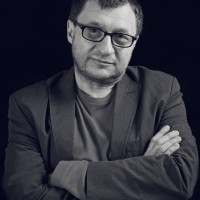Musicology is a vast industry represented by music historians, theorists and journalists. Upon completion of their studies, students obtain the qualification of a musicologist with the rights to teach music theory subjects.
The study process also includes a variety of work experiences, such as archivist, teacher, university assistant, publicist, lecturer, and in radio and other media which allows an insight into each career and helps choose the best path for future professional growth. In the same way, students and teaching staff of the Musicology Department work daily with the JVLMA Scientific Research Centre (SRC), organising interdisciplinary scientific conferences annually. A large number of the department's lecturers are researchers at the SRC and work with ongoing research of issues in the musicology sector.
The voices of JVLMA musicology graduates are heard on Latvian Radio, and their articles can be read in periodicals, music journals and the press. The contribution of musicologists is also important in the development of Latvian concert life as they work in major concert agencies, the Latvian National Opera and Ballet, as well as being guest lecturers. Meanwhile, those who have chosen research as their main field are researchers of JVLMA and other scientific institutions.
Musicologists also work successfully as teachers of music theory subjects in Latvian professional oriented and professional secondary education music institutions.
The beginnings of the Department of Musicology are linked to 1946 when, in the State conservatory of the Latvian Soviet Socialist Republic as it was at the time, the doors of the Department of Music History and Theory were opened under the remit of the Faculty of Composition. In turn, in June 1952, the first graduation of Musicology graduates took place, celebrating personalities important in the history of Latvian musicology such as, Oļģerts Grāvītis, Jēkabs Vītoliņš, Lija Krasinska, Nilss Grīnfelds and others.
The Department of Musicology has experienced multiple names, content changes and the impact of political trends in the history of its existence, but it has existed in its current status since 2007. In the initial period of the Musicology industry, music history and theory were the two key cornerstones, gradually allowing new trends into the study plans, including publicity, journalism, ethnomusicology, music psychology and sociology.
Upon successful graduation of a Bachelor’s study programme "Music and Performing Arts" a Professional Bachelor's degree in Music is conferred upon a student, together with the sixth level professional qualification.
The integral curriculum of the Bachelor's studies, which in addition to academic and professional training courses also include the courses required for teaching, provides all graduates the corresponding pedagogical qualification (teacher of piano playing, violin playing, choral conducting, music theory, dance, etc.). Considering the requirements of
today's labour market, a number of study programmes allow students the option to obtain the right to work in a music school as a teacher of a different subject (to teach piano playing, music theory, a related wind instrument, etc.) as an elective course.
Upon completion of a Professional Master's degree programme a graduate is granted a Professional Master's degree in Music or Choreography. Upon successful graduation from the Academic Master's degree programme, a Master of Arts degree in Humanities is conferred.
At the end of academic doctorate studies, students receive a statement regarding the acquisition of a doctorate study programme and, after successfully defending the promotional work, obtains a doctoral diploma and a degree of Doctor of Arts (Dr. Art.).
















